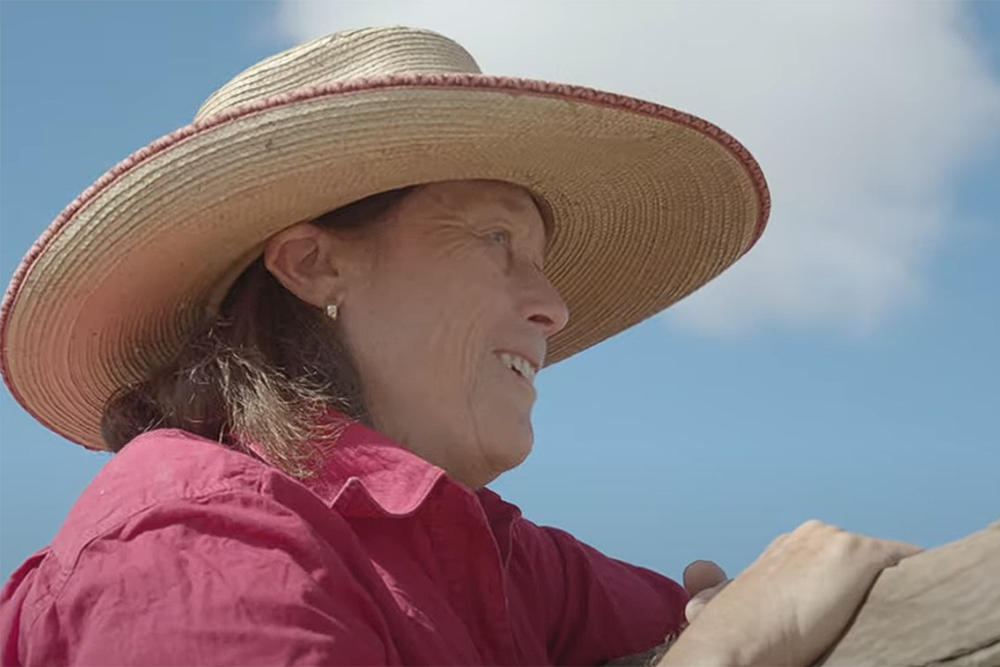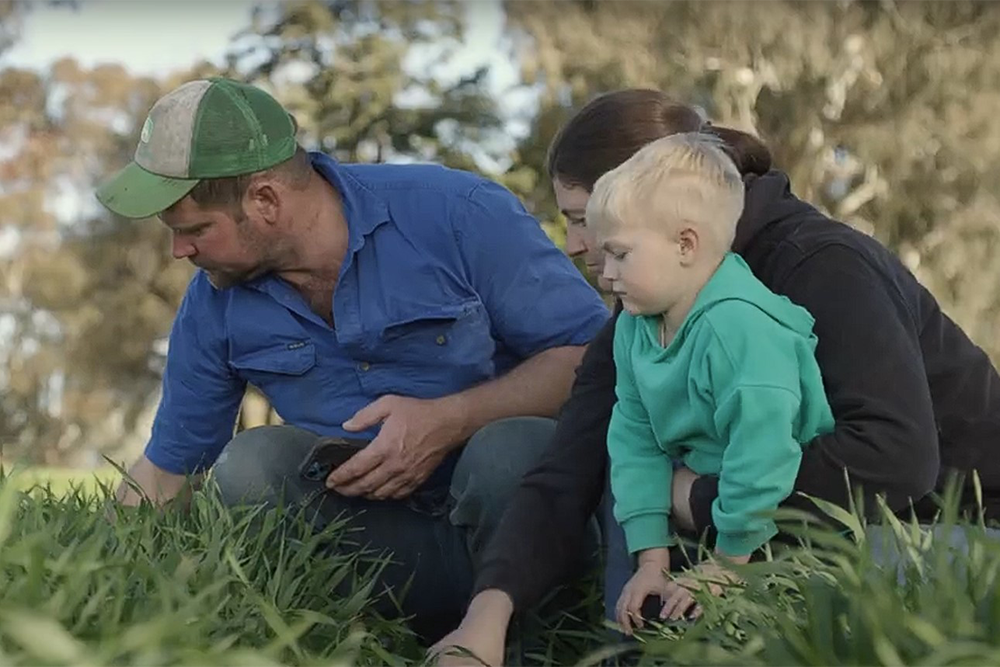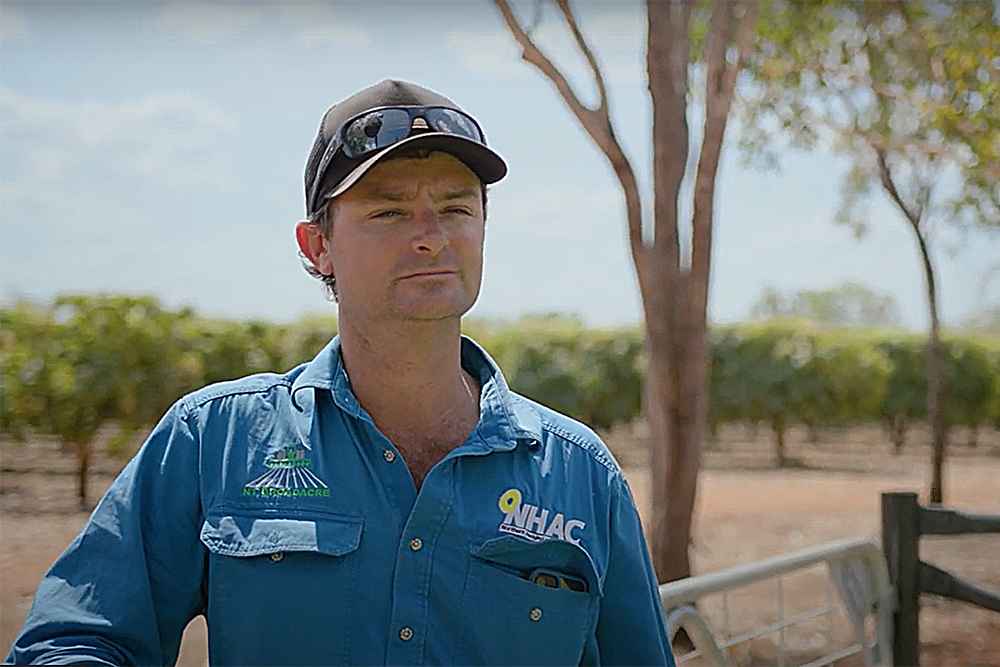In the face of a changing climate, many farmers are looking to fill knowledge gaps that will help them adapt to future challenges and build the resilience of their farms, businesses and communities.
James Bresnehan, mixed farmer and President of the Coal River Products Association (CRPA), a grower group based in the Coal River Valley in Tasmania, is one of those farmers.
“Knowledge is power. The more informed we can be, the more sustainable our business is going to be, and the more enjoyable farming is going to be”, he says.
James has built a strong working relationship with Alex Russell, Knowledge Broker at the TAS Farm Innovation Hub (the Hub), who works closely with the CRPA and other Tasmanian grower groups to understand what types of topics farmers are keen to learn about and upskill in. This is used to inform the Hub’s Regional Learning Event series, one of the Hub’s core activities.
“What we try and do at the Hub is work with partners so that there is actually a collaborative model of delivering information that goes to grower groups and individual farmers, to enable them not only to be prepared for future climate interventions, but also to develop and grow their businesses in all times” says Hub Director Sandra Knowles.
One recent learning event facilitated by the Hub saw climate scientist, Dr Tomas Remenyi, deliver a workshop to the CRPA. With an abundance of climate and other agronomic data available, farmers expressed that interpretation and application of this data can sometimes be overwhelming.
“They [the Hub] bring in experts like me to translate our scientific understanding into useful information that they [farmers] can take action on” said Dr. Remenyi.
“We went through how the different types of scientific inputs had different touchpoints in their operations on the farm, and then they could better understand which types of information they should be using for different types of decisions they were making.”
The Regional Learning Events series has delivered workshops that focus on business resilience, as well as commodity-specific workshops to support farmers manage through dry times.
See how the TAS Farm Innovation Hub is helping farmers build drought and climate resilience via their Regional Learning Events series
The Tasmanian Drought Hub (TAS Farm Innovation Hub) is funded by the Australian Government’s Future Drought Fund Drought Resilience Adoption and Innovation Hubs Program.
Video duration 4 mins 24 secs
Introduction
This is the transcript of a video case study produced by the Department of Agriculture, Fisheries and Forestry about a project run out of the Tasmanian Drought Resilience Adoption and Innovation Hub (the Hub), the Regional Learning Events series. The Hub is funded as part of the Future Drought Fund Drought Resilience Adoption and Innovation Hubs Program.
Learn more about the Future Drought Fund’s Drought Resilience Adoption and Innovation Hubs program.
Transcript
[Recording begins]
Sandra Knowles [00:23]:
The TAS Farm Innovation Hub is one of eight Hubs around Australia under the Future Drought Fund and our main aim is to work with farmers and producers on the ground to help them become resilient for the next drought or the next dry that's coming their way.
Alex Russell [00:36]
The Regional Learning Events series is one of the core activities in the TAS Farm Innovation Hub and it helps us to work with farming communities to bring good information that's relevant to their farm businesses, to support how they farm and how they're going to farm in the future.
Sandra Knowles [00:54]:
What we try and do at the Hub is work with partners so that there is actually a collaborative model of delivering information that goes to grower groups and individual farmers, to enable them not only to be prepared for future climate interventions, but also to develop and grow their businesses in all times.
And so it might be information around, you know, business resilience, it might be diversification, it could be about sustainability, but the ultimate aim is to have resilient farms on the ground, and I feel that we are working together as a community and as a set of professionals to actually help farms do that together.
James Bresnehan [01:30]:
Currently I'm President of the Coal River Products Association, it’s a farmers organisation that's been in the Coal River Valley for more than 50 years. It's a really great organisation that brings a lot of farmers together to help spread knowledge.
Alex Russell [01:43]
My work is to make sure that the right expert is brought in at the right time and combined with the information that is in the room, can top up the knowledge of the farmers, rather than sort of seminar-style lecturing them on how to do their work.
We know that the farmers know how to do their work. It's just providing that extra little bit of information to make sure they know how to do that in a changing climate.
James Bresnehan [02:10]:
In my opinion, knowledge is power. The more informed we can be, the more sustainable our business is gonna be and the more enjoyable farming's going to be.
Sophie Milic [02:18]:
We feel really lucky that we've been working with the TAS Farm Innovation Hub to source experts and to find knowledge on topics that are of interest to our members and be able to run workshops on them, to have guest speakers at our meetings and ensure that our members are getting the knowledge they need to make great decisions.
Tomas Remenyi [02:36]:
Working with the Innovation Hub has been fantastic. They have been excellent at identifying opportunities and needs inside industry groups, particularly where they have knowledge gaps that need to be filled and they bring in experts like me, to translate our scientific understanding into useful information that they can actually take action on.
Best workshop I ever run was facilitated by the Hub and it was talking to the Coal River Valley Products Association about how there was different types of information. There was weather forecasts information, seasonal outlooks, and then future climate projections. And we went through how those different types of scientific inputs had different touch points in their operations on the farm, and they could then better understand which types of information they should be using, for different types of decisions they were making.
James Bresnehan [03:30]:
It was really beneficial for farmers in the region as it addressed our current climate, what to look forward to in the future, and indicators that may affect forecasts going forward.
Sophie Milic [03:40]:
Bringing in an expert like Tom to our producer group to share his knowledge really has flow-on effects because we are then discussing that knowledge and we are sharing the knowledge with other producers in our community.
Sandra Knowles [03:53]:
The FDF has enabled us to actually bring together a place-based model where we can get out on the ground, we can really understand firsthand what the issues are that farms and communities are facing through the drying times, and actually bring the solutions straight to the farm gate or to the grower communities, then ensure that they have a longer-term sustainable business, which means our communities are stronger.
[Recording ends]



